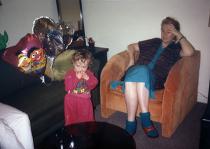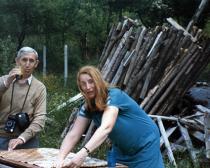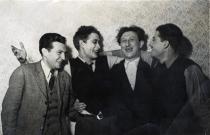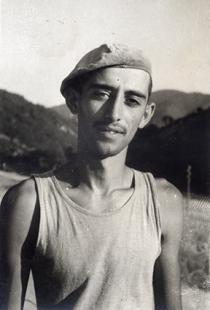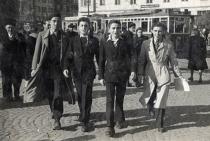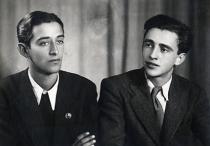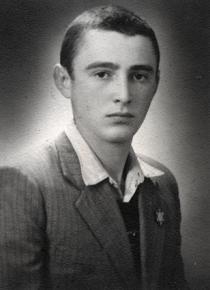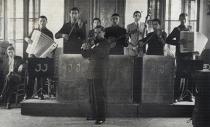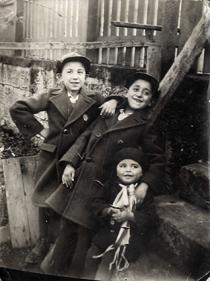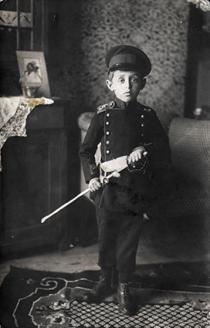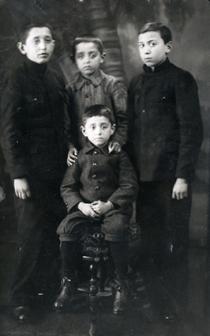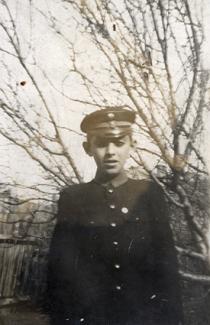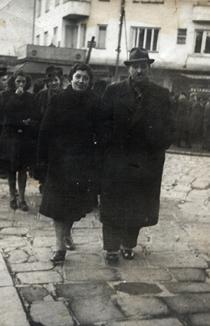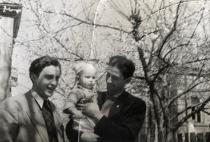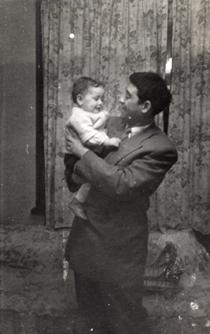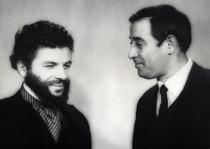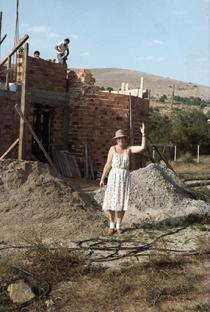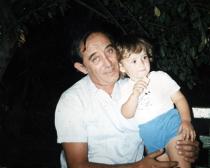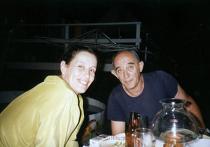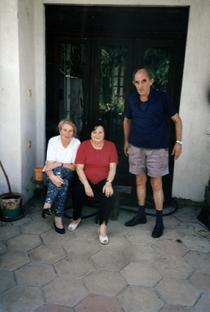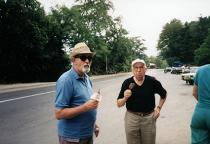This is a tango troop in the Jewish school in Ruse. I am in the center of the second row with a guitar. Albert Ventura is in the forefront holding a violin. He was in charge of the misic band ‘Jeby Jazz’. Ziko Garsiani is on the far left end. He became a famous musician in Israel. Mois Levi is in the far right end holding an accordion. Later he became the best surgeon in Israel. By that time he used to say he was about to be a surgeon, which was why he needed to exercise his fingers, (when Bulgaria became a democratic country he operated on the Ex-Prime Minister Luben Berov). Kito Barutchiiski is on the left, holding an accordion, next to him is Elizer Hason holding a violin. The picture was taken in the town of Ruse, in 1942.
In Ruse people were very musical. There was a Jewish musical group 'David', that possessed all the needed instruments to form a philharmonic orchestra. In the 1930s some rich Jewish boys formed a jazz band and they ordered the instruments directly from America together with the parts. Every year or at least once in two years this band performed an operetta. There was one operetta 'Karmuzinella' - directed by the then-famous Bulgarian actor Matyu Makedonski. He directed also 'Sunny Boy' by the American singer Al Johnson. Matyu staged the play and the whole town was singing 'Sunny Boy' that season.
There were various traders in Ruse - they were in the cloths business, haberdashery, ironware - there was even a tradesman who had put a sign 'Industrial Store'. There were many craftsmen - four or five tinsmiths. One of them was an Ashkenazi Jew - he was an expert in covering roofs with tin sheets. Perhaps he had been in the town since the period of the Russian-Turkish War [1877-1878] because Russians used to cover their roofs with tin sheets. One of his sons was a glazier. Some younger men who had graduated from the technical school had opened their own workshops with one or two lathes, too. There was also a brush maker. One of the best dressmakers and tailors in the town was a Jew again. There was also a man who had a private bank, but he closed it and started selling cloths. There were also two or three Jewish lawyers. We had five doctors. Everywhere in the neighborhood, we had running water in the houses and electricity as well, but there was no sewerage system.
Friday was the market day. My father used to go shopping to the central market; there was another one - smaller. My mother had to cook for seven people these days. We had meat to our meals as much as two times a week. Once a week it was beef, the other time it was chicken or some poultry. The rest of the time we had Lenten fare. However, Mum knew dozens of different vegetable meals - for example she could make balls of spinach, unions and potatoes. The meat was only kosher. The rabbi used to go to the slaughterhouse and put his seal. So when you go to the butcher's and see this seal, you can simply say 'I want from this'. We would buy from different tradesmen - it depended on which way would Dad come home after he closed his shop at 12 o'clock on Friday. He could not pass through the butcher's, he could pop in the grocer's. There were several such grocers - Jews whom we used to buy from. When he was to buy something, he could decide to buy us a whole cart with watermelons for example - he hires a cart, selects the watermelons and we all go home to unload it. The same happened when we had to buy logs for the winter. Turks from Deliorman [a region in Northeastern Bulgaria, around the town of Shumen, with a significant Turkish population] came to Ruse to sell their wood. We used logs and coal for heating. There was one wood stove in the wall between the two children rooms. My mother and father had another one in their room.

